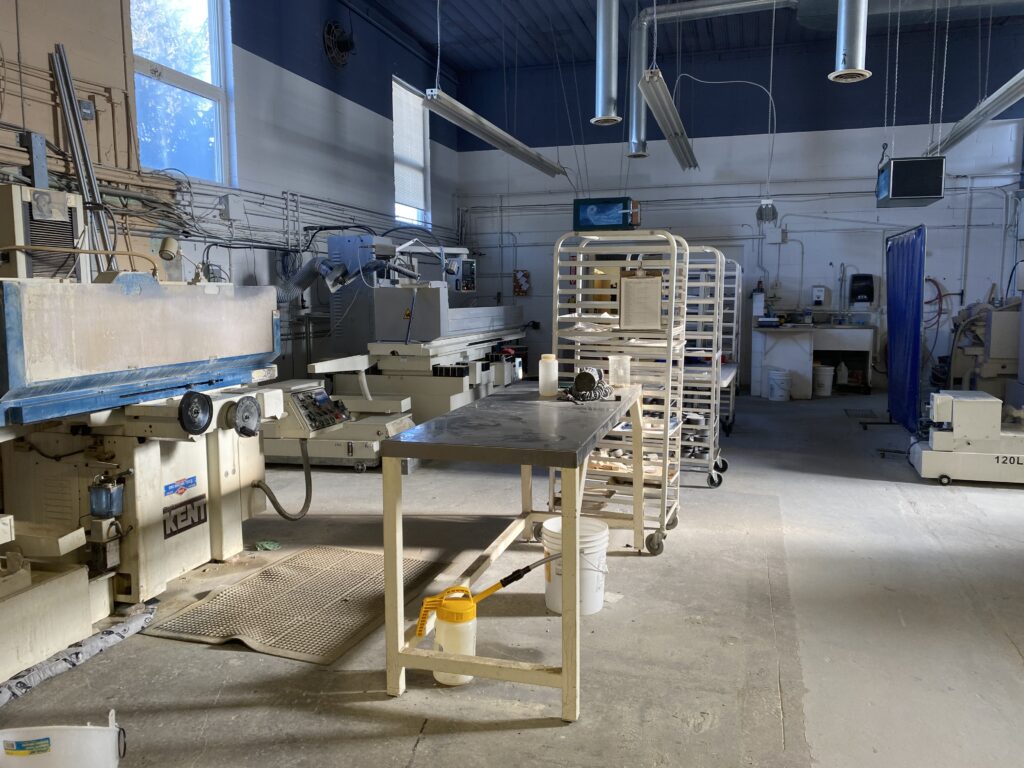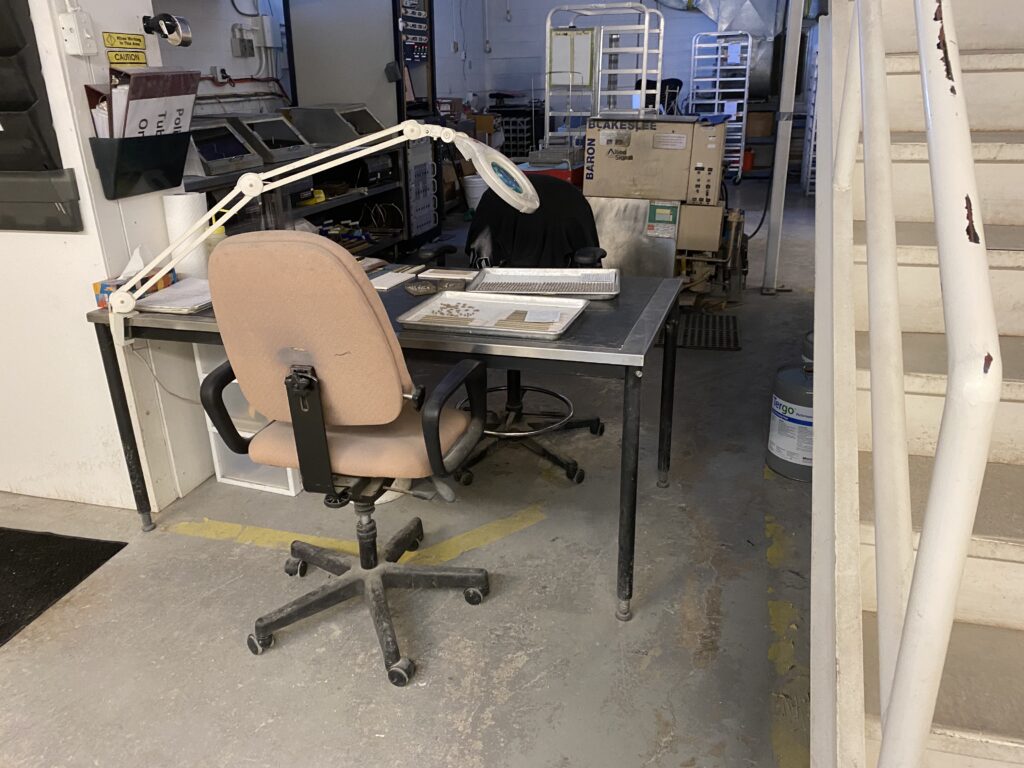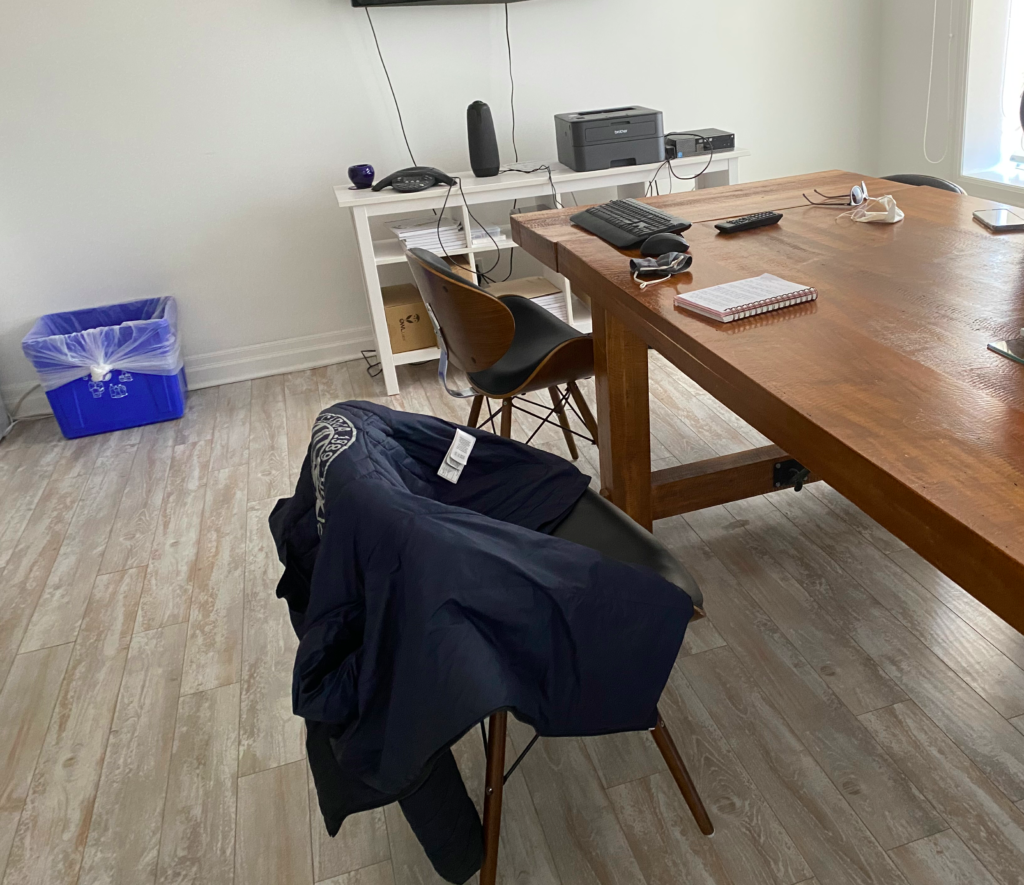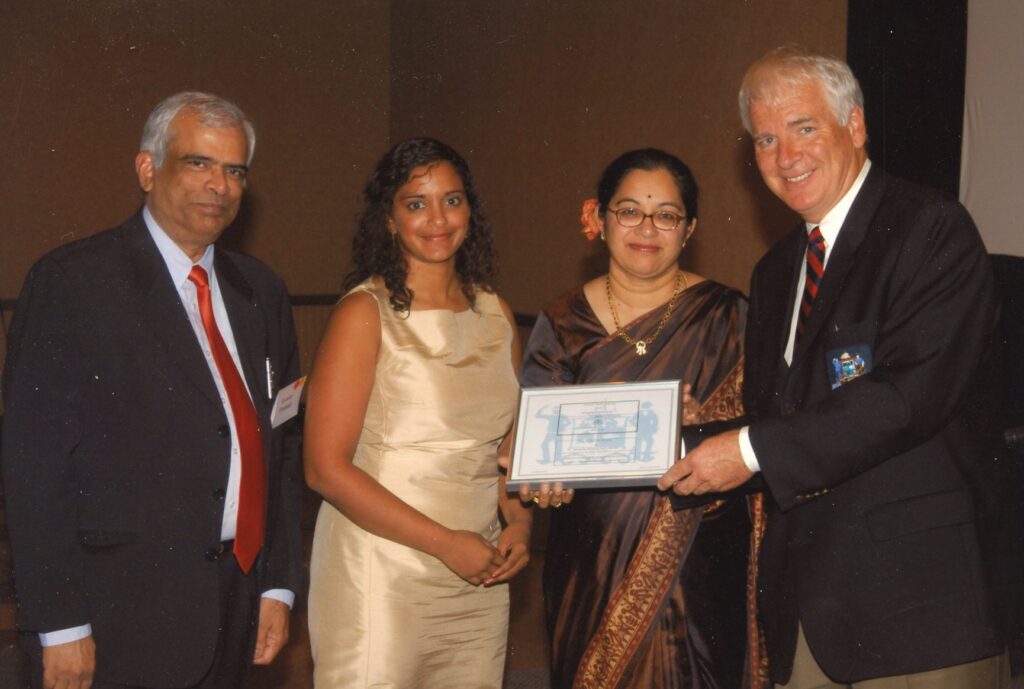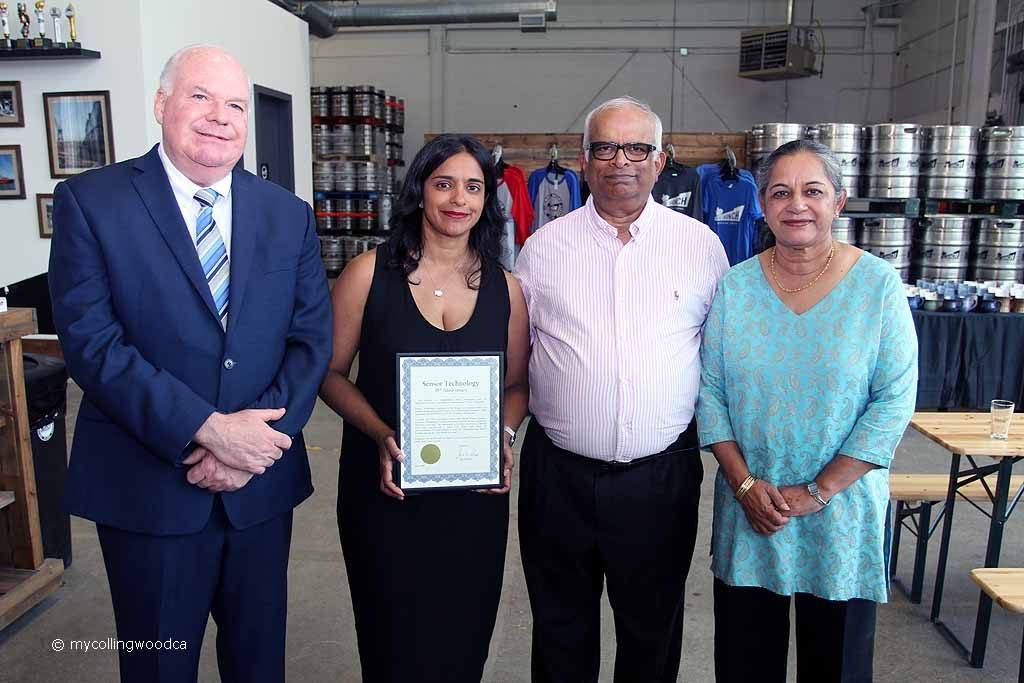By Abbigail Saunders
It is morning in Barrie, Ont. A CEO peer support group is about to start and, today, it is only a half-day session. About six older men have joined to discuss their worries.
Niru Somayajula is a new CEO in her early thirties and she is discovering how lonely her role is. There is no one to turn to.
This is her first time attending a peer support group. Somayajula, who usually seems quite confident, is terrified. Seeing the men who sit in the room before her is intimidating. They have years of experience and she is only a beginner.
One of the men comes over to her, mutters some words of encouragement and says something that resonates with her. “If you want to create a change in your business this is the perfect group to help you do that.” Little does he know, this is exactly what Somayajula needs to hear. She has to create a change.
A few years later, Somayajula, now 40, pushes open a heavy, pale blue door to one of her manufacturing facilities in Collingwood, Ont. The company owns five, three all lined up along Stewart Road in town, and two in Halifax.She is the CEO of Sensor Technology Ltd. The company manufactures acoustic sensors, used to explore the ocean with sound to create imaging. Somayajula’s parents, Eswar and Shashi Prasad, started Sensor Tech, as they call it, in 1983 under a different name. Their daughter took over in 2011.
According to Oceana, an international organization focused on preserving the ocean, “more than 80 per cent of the ocean remains unexplored” as of 2020, something Somayajula is interested in changing.
The move to Halifax is a big shift for the company. Somayajula has been the boss for around 10 years, but for a while she was nervous about a change in direction.
Her sister, Jacqueline Batista, says that Somayajula has wanted to make her mark, and grow Sensor Tech, not just maintain the status quo. And Batista says her sister also does this as a woman of colour in tech. And she has accomplished it as a woman working in an industry overwhelmingly dominated by men.
In the manufacturing facility in Collingwood, a luminous room devoid of people, is painted white and filled with intriguing-looking machines. Some resemble big ovens, while others look like white robotic arms, ripped from a larger, human-like robot.
On the left side of the large, rectangular room is a door and Somayajula turns toward it. The clack of her steps on the hard concrete floor is the only sound.She opens the door to reveal a small space that has just enough wiggle-room to cram 20 people in. A brown table, about three metres long, sits in the middle surrounded by black and light-brown leather chairs, with legs that almost match the table’s colour. The floor is no longer concrete but a mixture of brown and grey wood.
She takes off her jacket and puts her phone down before she sits. Somayajula remembers a time when this was a lunchroom, and her father’s office was just above. At the rear of the building was a tiny office where she learned how to use a typewriter when she was eight, and typed out invoices and answered calls not knowing she would one day take over.
In her father’s day, the boardroom looked nothing like the one Somayajula sits in. Instead of blank white walls, wood panelling filled the room and an orange shag carpet covered the floor. Somayajula’s face widens in a smile as she proclaims the carpet was amazing, not hideous.
As a kid, she never saw herself taking command of the company. Longtime employee Bill Keith chuckles at how the teenage Somayajula always insisted she would never work for her parents.
Somayajula’s goal was to work for an oil and gas company as a geological engineer. She interned for the multinational corporation in Paris before graduating from Western University.
That company combined her favourite things, travelling and science.
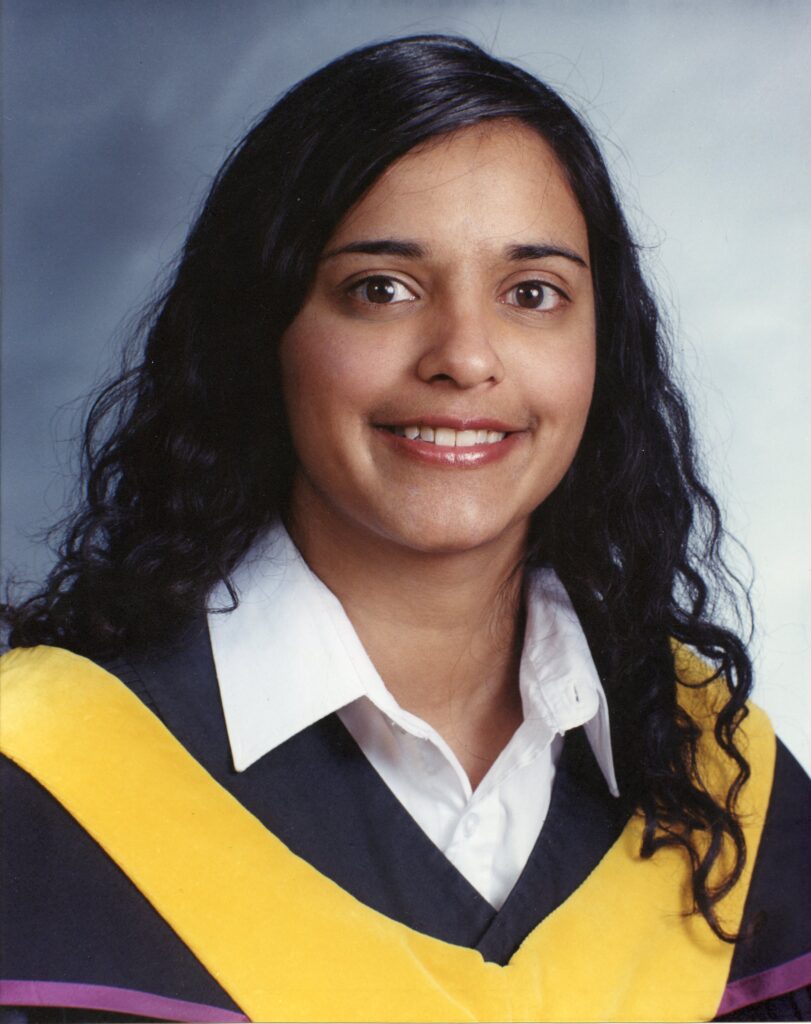
Eswar Prasad says, smiling, “When she went to Europe, we knew for certain that she was never going to come back. She really loved the culture.” Shashi says she even told their daughter she did not have to join the family business; the work-life balance is not easy.
But after years of negotiations for her parents to sell Sensor Tech to a multinational corporation, the plan fell apart. Seeing her parents wanting to step away and plan for retirement, she, along with her now ex-husband and their business partner, bought into the firm in 2011.
“I grew up with it, I didn’t want to see it falter,” Somayajula says.
But their priorities differed. Eswar remembers how money was their biggest challenge, but when Somayajula started she did not have to worry about that.
The company has grown substantially since Somayajula took over, says Keith, the inventory administrator. Besides the additional buildings and having twice as many employees, Sensor Tech has three times the machinery it had back in 1996 when he started. The company manufactures “thousands, or tens of thousands” pieces, he says.
The practices of knowing each of their 30 or so employees in Collingwood by name and having an open door are still in place. Business operations manager Deena Osborn notes that she and Somayajula have supplied employees breakfast at early meetings, and held barbecues. But the obvious growth has been the biggest change during Somayajula’s tenure at the top.
Back in December, the company received over $500,000 in government funding of government funding in Halifax, a part of the Supercluster Initiative, which gives grants for research. Down East, people are not aware of the long history the company has in Ontario. So this “win” puts the company on the map for ocean technology, allowing Sensor Tech to explore a new, innovative project on a larger scale, Somayajula says.
The Sensor Tech facility Down East is in the perfect location to experiment with new tech due to the close proximity to the ocean, something Collingwood, Ont., does not have access to.
She understands what it’s like to be an unknown quantity, to have people doubt her ability. Eswar huffs a small breath, looking into his lap and carefully says, “I started feeling people were second-guessing her in the company.” This was when his daughter was business operations manager for a short period before taking over, and he and Shashi still worked at Sensor Tech. Employees would check in with him or his wife about Somayajula’s requests on decisions. But her parents always trusted her.
Fresh out of school and only 27 when she first joined, Somayajula realizes people were skeptical. “I definitely had to prove to the existing staff that I was able to take over for my parents, that I’m worthy of carrying on their legacy.”
Now, unlike that rookie CEO scared of making the wrong decision a decade ago, Sensor Tech has changed and so has she.
“It’s OK for me to be me,” she says, her tone steady and self-assured. “I have my own voice, I am my own person with my own ideas on how to do things.”

